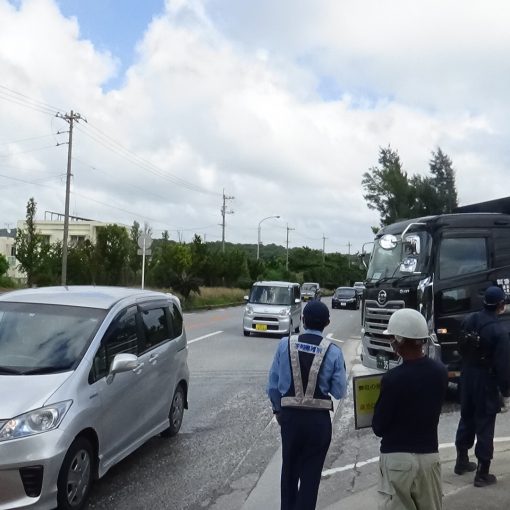June 8, 2020 Ryukyu Shimpo
Following the election for the Okinawa Prefectural Assembly (48 members) at the expiry of assembly members’ terms, members of parties supporting Governor Denny Tamaki hold 25 seats in the assembly. This is two fewer than after the previous election under the Onaga administration, but the governor-supporting party members still hold a majority.
Opponents of the new base construction in Henoko, Nago as part of the relocation of U.S. Marine Corps Air Station Futenma continue to hold the majority of seats in the Okinawa Prefectural Assembly after the recent election. This means that that a majority of Okinawans have once again expressed their opposition to the base.
The national government should take these results to heart and abandon its plan to build the new base in Henoko. We cannot allow the popular will to be ignored any longer.
Opponents of the new base construction have been successively elected, from Governor Tamaki in the September 2018 gubernatorial election to Diet members Tomohiro Yara in the lower house election in April 2019 and Tetsumi Takara in the upper house election in July 2019. In the referendum on the base construction in February of last year, more than 70% of voters opposed the land reclamation.
In the recent prefectural assembly election, the Liberal Democratic Party, which is the opposition party in the prefectural assembly, took a clear stance of “acceptance” of the new base opposed by the governor-supporting parties, on the grounds that it is the only feasible plan to quickly eliminate the dangers posed by MCAS Futenma. The parties’ opposing views on the issue were clear-cut, and the issue was a key point of contention in the election.
Other issues at stake in the election were measures on coronavirus infection, medical care and welfare policies, economic revitalization policies, and the like. The election served as a mid-term assessment of the Tamaki administration, which was established two years ago. The results can be said to show that the Tamaki administration has garnered a certain degree of trust from the people.
We hope to see Governor Tamaki approach negotiations with the national government bolstered by this consistently-demonstrated public opposition to the construction of the new base in Henoko.
The executive and legislative branches of government are referred to as two wheels of a vehicle. In this dual-representative system, assembly members are representatives of people living in the prefecture directly elected, alongside the governor, by the residents. For members of the governor-supporting parties to uncritically accept all of the governor’s policy proposals, and for members of the opposition parties to oppose all of his policies without careful consideration, prevents constructive discussion.
The governor too must not neglect to endeavor to increase understanding of prefectural government administration by remaining in regular, close communication with assembly members of all parties.
We hope to see the 48 members elected by the voters strengthen their role of providing a check on the prefectural administrative arm while also endeavoring to make the prefectural assembly even more open and transparent to the people of the prefecture.
There are many issues to be addressed other than the base issue, such as helping the tourism industry recover from the hit it has taken as a result of the coronavirus; addressing the end of the Okinawa Advancement Plan, which will draw to a close at the end of fiscal 2021; improving Okinawan income levels, which are among the lowest nationwide; and addressing child poverty.
As set forth in the Okinawa Prefectural Assembly Basic Ordinance, the independence and autonomy of the prefectural assembly must be increased, and its functions must be exerted to their maximum. “Accurately ascertaining the will of the people and reflecting it in the prefectural administration through assembly activity” is the crucial mission assigned to the prefectural assembly. We want each assembly member to take this mission to heart and devote themselves daily to seeing it through.
In the recent election, assembly members were elected without any voting taking place in four electoral districts, the largest number of electoral districts for this to happen historically. In part because of the coronavirus, the voting rate was a historical low of 46.96%. This is a terrible shame. We must find a way to make voters aware of policy issues and promote voting.
(English translation by T&CT and Sandi Aritza)





